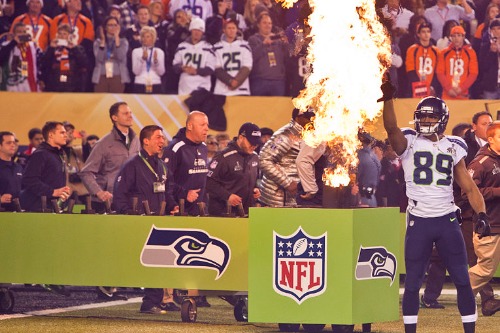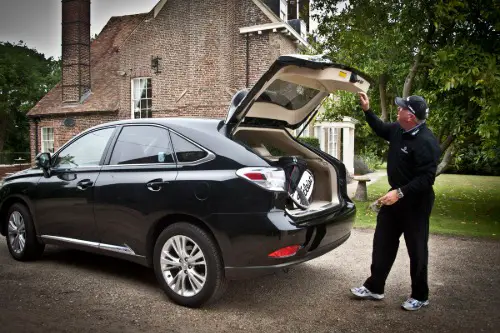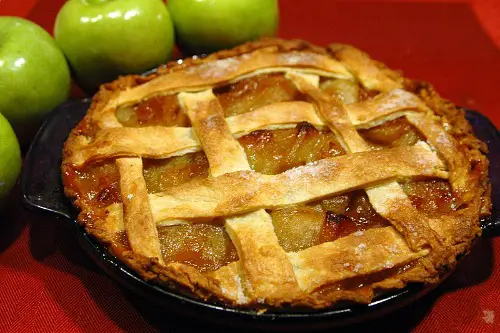1. All Americans Are Obnoxiously Patriotic

If Hollywood movies were your guide, you’d think every American has a flagpole out front and spends the 4th of July tearfully singing “The Star-Spangled Banner.” Patriotism is deeply ingrained in the national psyche, according to The New York Times, but it’s far from an all-consuming obsession for everyone. Many Americans are deeply critical of their own government or disillusioned by systemic issues, and their patriotism might manifest more as civic engagement than flag-waving.
The stereotype also fails to capture regional differences. People in some states are more overtly patriotic than in others, and the reasons can vary based on history, culture, or even the local sports team’s success. Americans do love a good fireworks show, but that doesn’t mean they’re all shouting “U-S-A!” every chance they get.
2. Everyone Is Obsessed with Football

Americans are known for their passion for football—both college and professional—but the idea that every single person in the U.S. lives for Sunday Night Football is more myth than reality. Sure, the Super Bowl is a big deal, with commercials as hyped as the game itself, AP News reports, but that doesn’t mean all 330 million people are glued to their TVs. Some Americans genuinely don’t care about football and prefer other sports like basketball, baseball, or even soccer, which is gaining traction. Others would rather spend their Sundays hiking, binge-watching shows, or avoiding sports altogether.
This myth likely stems from the sport’s prominence in pop culture and how frequently it’s depicted as a cornerstone of American identity. While the NFL is the most-watched sports league in the country, there’s a growing subset of people who criticize the sport for its violence or the controversies surrounding its management. So, while football culture is strong, it’s far from a universal truth.
3. They Only Eat Fast Food

Yes, America gave the world McDonald’s, Burger King, and KFC, but the idea that Americans survive solely on fast food is absurd. A quick glance at Instagram will reveal that Americans are equally obsessed with kale smoothies, avocado toast, and farm-to-table dining. Yes, fast food is popular, and according to CBS News, a lot of people eat more of it than it’s healthy, but the rise of Whole Foods and farmers’ markets points to a growing emphasis on fresh, organic eating.
The fast-food myth likely comes from its sheer visibility. Drive-thrus are everywhere, making it seem like people are constantly in line for a Big Mac. While it’s true that fast food is a staple for many due to convenience and affordability, there’s a vibrant food culture in the U.S. that goes far beyond deep-fried everything.
4. They’re Terrible at Geography

“Wait, you mean Europe isn’t a country?” This myth likely stems from viral videos and TV shows where Americans struggle to locate countries on a map. While it’s true that geography education in the U.S. has been criticized by the U.S. News & World Report for being lackluster, it doesn’t mean every American is clueless about the world. Many Americans travel internationally and are well-versed in global cultures.
The reality is more nuanced. The sheer size of the U.S. means most Americans are more familiar with their own regions than foreign countries. It’s also worth noting that the U.S. system emphasizes different areas of study—like history or math—over geography. Still, the stereotype sticks, thanks to those infamous “name this country” videos.
5. They’re All Workaholics

The image of Americans as nonstop hustlers grinding through 80-hour weeks is both true and exaggerated. It’s undeniable that American culture values hard work, with fewer vacation days and shorter maternity leaves than many other countries. But not every American lives for their job. The pandemic even spurred a movement toward better work-life balance, with concepts like “quiet quitting” gaining traction. The Atlantic reported in 2023 that more and more Americans seem to be embracing a healthier work-life balance.
This myth might come from the sheer visibility of hustle culture on social media. Influencers glorify “the grind,” but many people are just trying to get through the workday without burnout. While the U.S. has a strong work ethic, plenty of Americans prioritize downtime, hobbies, and family just as much as their careers.
6. Americans Are Obsessed with Guns

It’s true that gun ownership is a unique cultural touchstone in the U.S., with more guns than people in the country. But not all Americans are gun enthusiasts. In fact, gun ownership varies significantly depending on geography, culture, and political views. In urban areas, gun ownership rates are much lower, and many Americans are actively advocating for stricter gun laws.
The myth likely persists because of the country’s deep historical ties to firearms, from the Wild West to the Second Amendment debates. While guns are part of the national conversation, assuming that all Americans have a gun and are ready to use it is a gross oversimplification.
7. They’re Loud All the Time

The stereotype of the loud American tourist shouting in foreign lands is persistent, but it’s not universally accurate. Americans come from a wide variety of cultural and ethnic backgrounds, each with their own norms around volume. While Americans might generally speak louder than people in some countries, it’s not as if they’re always yelling.
This myth might come from cultural differences in personal space and expression. Americans tend to be more extroverted, which can be interpreted as “loud” in quieter cultures. But in reality, volume levels depend on the individual and the context—New Yorkers might be louder than, say, someone from rural Maine.
8. Everyone Is Rich

Movies and TV often paint a picture of sprawling suburban homes, flashy cars, and shopping sprees, leading to the misconception that Americans are universally wealthy. The truth is, income inequality is a significant issue in the U.S., with many people struggling to make ends meet.
The myth might come from the U.S.’s status as a global economic powerhouse, but that doesn’t mean every citizen is swimming in cash. A significant portion of Americans live paycheck to paycheck, and the wealth disparity is glaringly evident in major cities where luxury high-rises sit next to struggling neighborhoods.
9. Americans Are Obsessed with Fame

The perception that every American is desperate to become the next TikTok star or reality TV sensation is more myth than reality. While Hollywood and the entertainment industry are undeniably a big part of American culture, not everyone is chasing the spotlight. Many Americans find fame superficial and are more focused on their personal lives or careers.
This myth likely comes from the prominence of U.S. pop culture worldwide. With platforms like Instagram and YouTube amplifying influencers, it’s easy to assume that everyone is vying for their 15 minutes of fame. But for most people, fame isn’t a priority—they just want stability and happiness.
10. They’re Bad at Other Languages

It’s true that Americans are often monolingual, but that doesn’t mean they’re incapable of learning other languages. The U.S. education system doesn’t prioritize foreign language instruction until later grades, which makes fluency harder to achieve. However, many Americans speak Spanish, Chinese, or other languages due to the country’s diversity.
The myth persists because English is so dominant in the U.S., and Americans traveling abroad often default to it. Still, in multicultural areas, you’ll find bilingual or multilingual speakers everywhere, from homes to workplaces. It’s more accurate to say that Americans aren’t always encouraged to learn other languages rather than assuming they can’t.
11. They’re All Obsessed with Religion

While religion is significant for many Americans, it’s far from universal. The U.S. is incredibly diverse in its beliefs, with a growing number of people identifying as atheist, agnostic, or “spiritual but not religious.” This shift is especially pronounced among younger generations.
The myth likely stems from the country’s historical ties to religious freedom and the visibility of evangelical movements. While faith remains a cornerstone for certain communities, others place little importance on religion. It’s a broad spectrum that defies simple generalizations.
12. Everyone Loves Country Music

Country music might be quintessentially American, but not everyone is blasting it on their road trips. Musical tastes in the U.S. are incredibly varied, ranging from hip-hop and R&B to indie rock and electronic. Country dominates in certain regions, particularly the South and Midwest, but in cities like New York or Los Angeles, it’s far from the dominant genre.
The myth persists because country music has deep cultural roots, often associated with themes like patriotism and rural life. However, it’s a niche interest for many, not a national obsession. America’s music scene is as diverse as its people, and country is just one slice of the pie.
13. They Don’t Walk Anywhere

The stereotype of Americans driving everywhere stems from the sprawling suburbs and the car-centric infrastructure of many areas. While it’s true that many Americans rely heavily on cars, urban centers like New York City, San Francisco, and Chicago have robust walking cultures.
The myth also ignores the growing popularity of cycling and public transportation in many cities. Americans in walkable neighborhoods or college towns might walk more than drive. The truth is, mobility in the U.S. is heavily dependent on where you live, not a one-size-fits-all narrative.
14. They’re All Extroverted

Americans are often portrayed as outgoing and chatty, but not everyone fits this mold. Many Americans identify as introverts and value their alone time just as much as anyone else. The idea that Americans are all bubbly social butterflies is more of a cultural stereotype than reality.
This perception likely comes from the prominence of extroverted behavior in American media and social norms that encourage friendliness. However, introversion is alive and well, with plenty of Americans opting for quiet evenings at home over big social gatherings. Like anywhere else, personality types run the gamut.
15. They All Love Apple Pie

The phrase “as American as apple pie” is iconic, but the dessert itself isn’t as universally beloved as you might think. In fact, apple pie’s origins trace back to Europe, making its status as a quintessentially American dish somewhat ironic. Many Americans prefer other desserts like cheesecake, brownies, or ice cream.
This myth persists because apple pie has been heavily marketed as a symbol of American identity, especially during patriotic events. But if you asked a random American about their favorite dessert, there’s a good chance it wouldn’t involve apples at all. It’s a nostalgic cliché, not a culinary truth for everyone.


